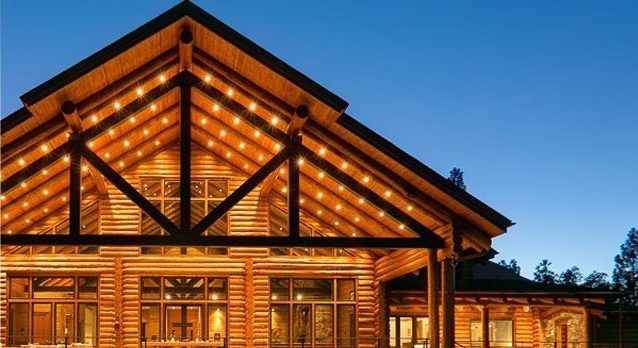Residential Colorado Springs Roofer install and repair roofing materials on homes. These materials may include shingles, tiles, wood shakes, and metal. The best choice for a home depends on the location, climate, and life expectancy of the roof.
Many roofers offer additional services, such as gutter cleaning and siding installation. It’s a good idea to find one who can complete both.
Many states require residential roofers to have a state license. These licenses vary by state and type but typically include a business license, worker’s compensation insurance, and proof of liability insurance. Depending on the state, these may also include an exam and a bond requirement. Some states also offer roofing certification, which requires a certain number of years of experience and an examination.
Roofing contractors must have a strong understanding of the different roofing systems and how they work. They must be able to measure, cut, and install materials correctly and be willing to work on ladders or scaffolds for long periods of time. They should also be able to inspect the structure of a roof and detect any underlying problems that need to be addressed.
Some states do not require roofers to have a state license but instead require them to register with the state’s Contractors Board. In the case of Idaho, you can find information on these requirements by visiting your state’s website. You will usually be able to enter the roofer’s name and license number into a search field, which will then display a list of results. You can also click on the results to see the contractor’s full information and registration details.
Licensing requirements
A residential roofer must have a state license in most states, but requirements vary by state. In some cases, a roofing contractor must also have a city or county license. In this case, a homeowner should check the roofer’s local licensing requirements before hiring them for work. If a homeowner hires an unlicensed contractor, it can have legal consequences and might even void the roof manufacturer’s warranty.
Licensed roofers perform a wide range of tasks, including repairing and replacing damaged or leaking areas of a client’s roof and sealing vapor barriers and insulation to create a more waterproof seal. They may also repair and replace gutters, chimneys, and other structures on a structure’s roof. In addition, they may apply shingles and other materials to roofs. They can also install insulation and vapor barriers to improve a home’s energy efficiency.
All contractors who perform residential work must have a state license. Roofing contractors are required to obtain this license from the Department of Licensing and Regulatory Affairs. Applicants must pass the residential roofer trade exam and submit proof of insurance and a surety bond before they can begin working in this field.
A roofing contractor must have a state license if the total value of their annual roofing work exceeds $15,000. Applicants must pass the residential roofer trade examination and provide proof of insurance. They must also post a $15,000 surety bond before they can begin working.
Roofers are required to have a state license issued by the Department of Commerce, Community and Economic Development, Division of Corporations, and Business and Professional Licensing. Applicants must provide proof of workers’ compensation and liability insurance as well as pass an exam.
Experience
Residential roofers must have a variety of skills to perform their jobs. They work in unpleasant weather conditions and at heights, and they must be able to follow strict protocols for the materials they use. They also need excellent customer service and communication skills. In your resume, start with your name in a large font and include your contact information near it. Next, list your education, starting with the most recent school and working in reverse chronological order.
Insurance
Residential roofers usually work in crews to re-roof homes quickly and efficiently. If a member of the crew is seriously injured or killed while on the job, workers’ compensation insurance pays their medical expenses and disability benefits. Without it, an injured worker may sue the homeowner for the cost of their recovery. Ideally, a roofing contractor will have workers’ compensation and general liability insurance. Homeowners should check that the roofing contractor they choose has these policies and ask for proof of them before hiring a company to do work on their homes.
A reputable roofing contractor will also have general business insurance. This policy provides coverage for lawsuits related to faulty workmanship, financial losses, and business interruption. The standard limit for general liability for roofing contractors is between $1 million and $2 million per occurrence. However, some homeowners might want to have more coverage to ensure that their valuable belongings are protected.
Roofers should have a surety bond as well, which is a type of contract insurance that guarantees the roofer will complete a project once they’ve been hired by a client. This bond is typically offered for a yearly fee and can be paired with a commercial auto policy to protect the roofing business’ vehicles, as personal vehicle insurance won’t cover work-related damages.
Lastly, a good roofing contractor will have a commercial property and equipment policy to cover any loss or damage to tools and supplies. This policy often includes a tool floater, which allows roofing professionals to get reimbursed for the value of their tools in the event they are stolen or damaged. Smaller construction businesses might be able to bundle these three policies into a business owner’s policy (BOP), which can help them save money on their premiums.
Reputation
The roof is one of the most important parts of your home, so you should make sure to choose a reputable residential roofing contractor. You can find out a lot about the quality of their work by reading reviews and asking for referrals. You should also check whether they have any manufacturer certifications. Having these certifications shows that they are trained and knowledgeable about the products they use. It can also save you money in the long run, as you’ll have access to manufacturer warranties and discounts.
Whether you’re looking for a residential roofer or any other service provider, reputation matters. People tend to trust businesses with a high rating on Google searches, and the best way to earn a great online reputation is by encouraging your customers to write reviews. You can also use a review management tool to collect and display customer feedback on your website and social media channels.
It’s important to remember that a good reputation takes time to build. So, be patient and keep working towards your goals. By doing so, you’ll be able to provide your clients with an outstanding experience.
It’s also a good idea to diversify your review solicitation methods. Asking your customers to leave reviews on different platforms will help you avoid duplicate reviews and increase the visibility of your business. However, you should never offer financial incentives in exchange for reviews, as this is against the terms of most review websites. In addition, you should address complaints quickly and show that you value your customers’ feedback.
